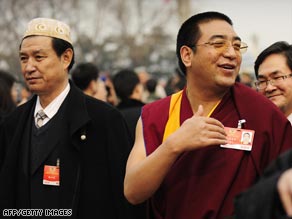
China National People’s Congress will consider landmark legislation that would make social benefits universal when it meets Thursday.
The NPC — the climax of China’s political calendar — will convene as 3,000 delegates from across the country and overseas gather in the capital, Beijing. The delegates will represent China’s central leadership, the military, every province, including minority groups such as Tibetans, and overseas Chinese. Landmark social security legislation will be considered that would make health care, unemployment and retirement benefits universal. If implemented, it would mark a major change in the nation’s social welfare system. “Even if they were to put in place the world’s greatest social security system and the world’s greatest health services tomorrow, it will still take many, many years of testing the system before it has enough credibility to change household consumption patterns,” Michael Pettis, a professor of finance at Peking University, said of ongoing attempts to stimulate the Chinese economy. The congress will also debate a law that would require officials to publicly declare their assets — part of a long-term campaign by the Communist Party to fight corruption. Ahead of the meeting, the congress announced a 15 percent increase in its budget for China’s quickly modernizing military.
Don’t Miss
China: Man starts eatery for disabled son
Winning bidder won’t pay for Chinese relics
The annual meeting comes as China confronts a global economic crisis that has sapped much of the strength from the nation’s once-red hot economy. In the past, the congress has been criticized as a political show, essentially a rubber-stamp parliament. But in recent years discussion and debate have crept in. “The whole country is fighting the international financial crisis,” said Li Zhaoxing, a spokesperson for the congress. “We hope to turn the challenge into an opportunity.” The government has already acknowledged that 2009 will be “austere and complicated.” It officially says 20 million migrants are unemployed, and analysts think more jobs will be lost. China’s exports have tumbled as the economic downturn has taken hold. The communist government has already approved a $586 billion stimulus plan, and there’s talk of more. “They have a lot of work” to do, Pettis said. “China needs to make the transition from a export-oriented economy to a domestic-market economy, and the historical evidence suggest that it is very, very difficult and it takes a long time.” China is on guard against possible social unrest during a year filled with sensitive anniversaries and rising unemployment. March marks the 50th anniversary of an uprising in Tibet. June marks the 20th anniversary of the Chinese military’s crackdown in Tiananmen Square. October marks the 60th anniversary of the founding of the nation.